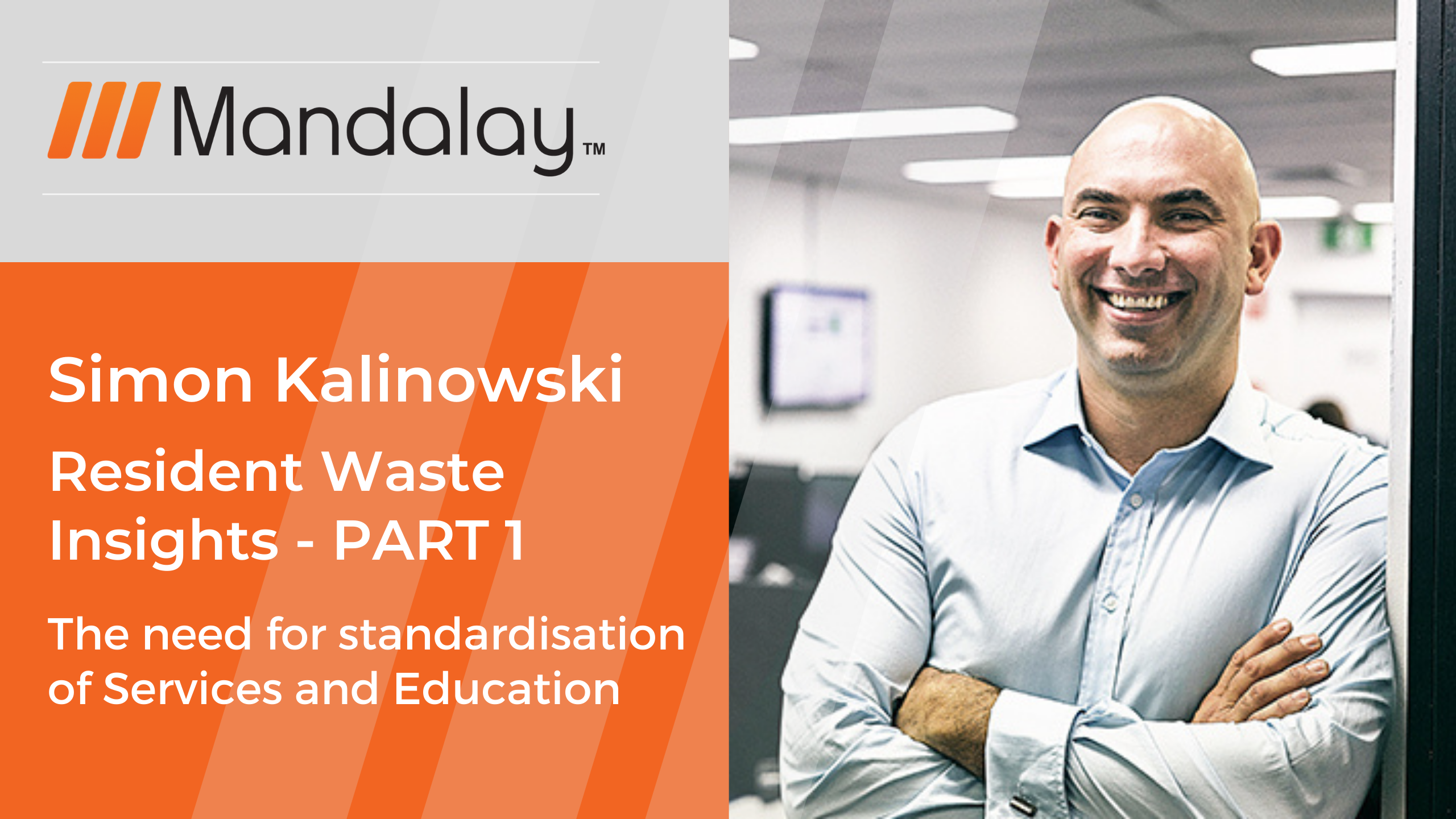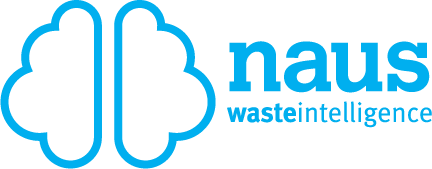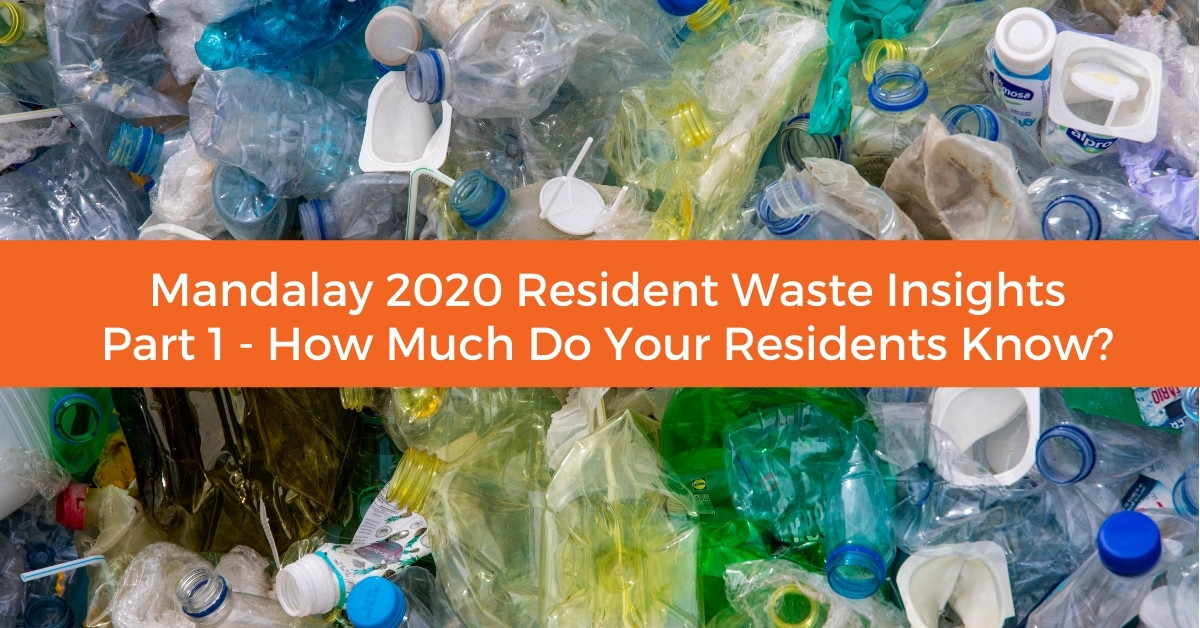
How Much do Your Residents Know About Waste & Recycling Systems in Australia?
We all deal with waste constantly in our day-to-day lives, from filling up and putting the general waste and recycling bins on the kerb for garbage truck collection, to visiting the tip to dispose of our larger unwanted items. Considering how much waste we generate and dispose of in our lives, you would think that the general public would have a fairly good understanding and knowledge of waste and recycling in Australia, but according to recent 2020 data obtained by Mandalay through Footprints Market Research, this isn’t necessarily the case.
Online research on key Australian waste industry topics was conducted with over 1,500 Australian residents to create the Mandalay 2020 Waste Report. In this blog, we unpack the insights found in relation to knowledge of waste and recycling systems in Australia.
Knowledge of Waste and Recycling Statistics
When respondents in this survey were asked about their level of knowledge about waste collection and recovery, there were 4 answers they could provide:
- Knows a lot
- Knows something
- Knows a fair bit
- Knows little or nothing
Across all categories, only 3-7% of respondents stated that they know a lot and 15-30% stated that they know a fair bit. The large majority of respondents admitted to knowing something or knowing little or nothing about key elements of waste collection and recovery.
Below are all the waste collection and recovery categories included in the survey along with the answer that had the majority of responses for each:
- Household waste and collection services: 42% know something
- Household recycling collection services: 40% know something
- Household green waste collection services: 35% know something
- Sorting, recycling, and recovery of materials: 41% know little or nothing
- Council tips/resource recovery centres: 45% know little or nothing
- Overall waste and resource recovery system: 49% know little or nothing
- The use of recycled materials in new products: 46% know little or nothing
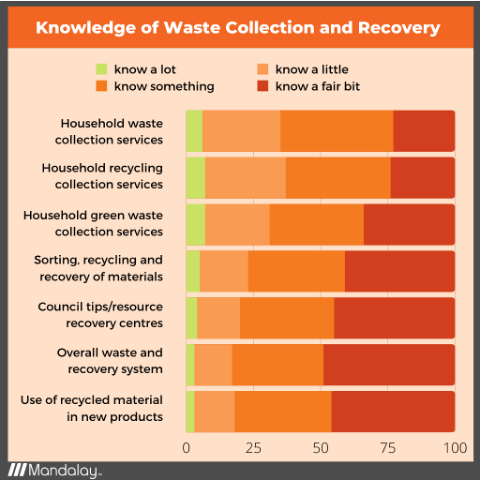
When these statistics are broken down by location, Queensland and Western Australia had a significantly higher number of people who know little or nothing about green waste compared to other states (i.e., 45% of Queenslanders and 41% of Western Australians). However, this may be largely attributed to the usage of green waste collection being significantly lower in Queensland and Western Australia compared to other states.
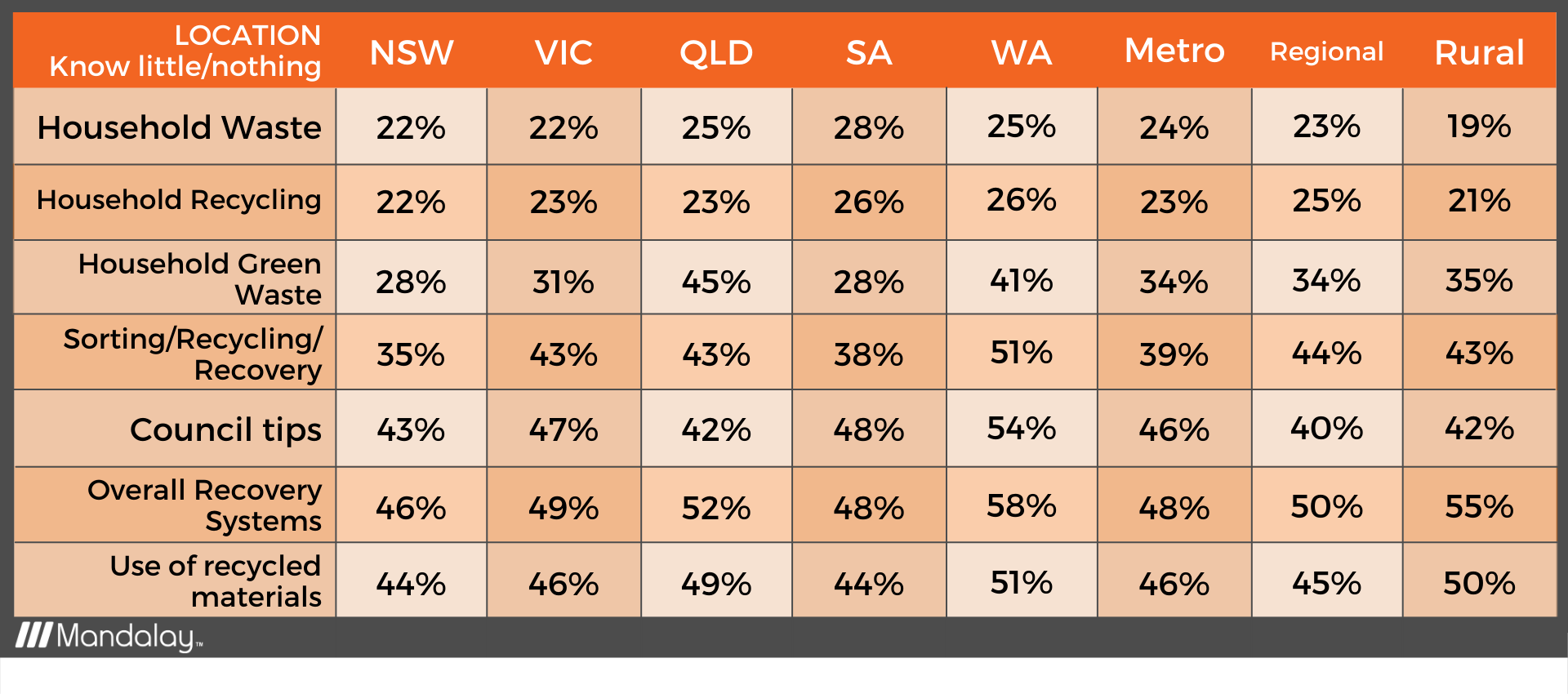
When looking at these statistics segmented by age range, there is no clear divisible difference in any category, except for a slightly higher portion of individuals aged 70 plus having little or no knowledge about the overall recovery system and the use of recycled materials.
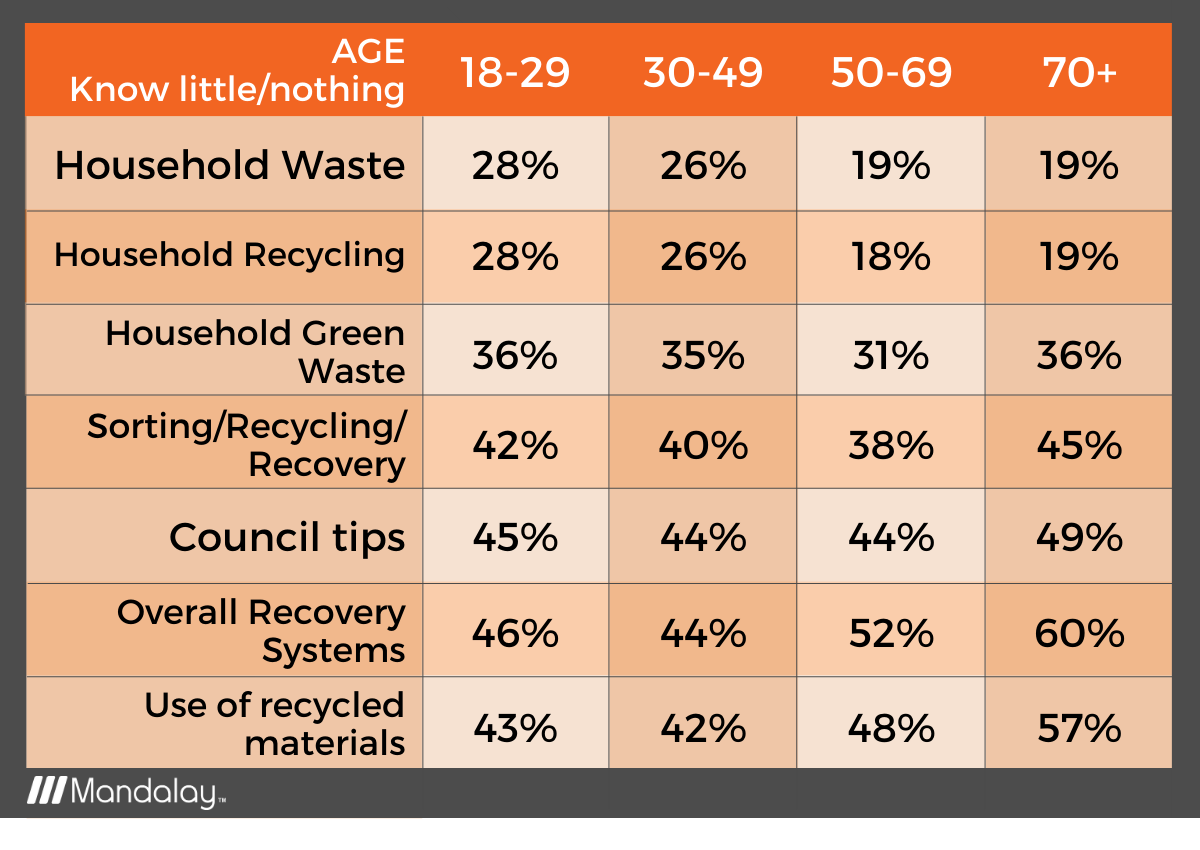
What Does This Information Mean for the Australian Waste Industry?
The above data shows that up to half of Australian residents know little or nothing about the broader waste and resource recovery system. The areas where respondents had the lowest levels of knowledge include council tips and resource recovery centres, the overall waste and resource recovery system and the use of recycled materials in new products.
This data suggests to us that, across the board, there are opportunities available for all councils to further educate their residents on the waste and resource recovery industry and how it works.
What Can Be Done to Improve Waste Management Knowledge in Australia?
Councils could consider investing in education programs and promotional materials to address lower levels of public knowledge and awareness in these areas. Expanding education programs and promotional materials can help encourage the community to better utilise the waste and recycling services available to them, particularly those services that some people do not know how to use or may not even know exist.
For example, providing the public with more transparent information on the use of recycled materials in new products can be a great first step in empowering the community with knowledge about the tangible results of their recycling efforts, thus further encourage them to be more conscious about their recycling efforts.
Want access to even more statistics and insights and behaviours towards waste and recycling in Australia?
Download a free copy of Mandalay’s 2020 Waste Report here.
Resident Waste Insights – Part 2 Blog: Awareness and Usage of Waste Services
Are Australians aware of the waste services available to them and are those services being used as frequently as Councils expect?
Resident Waste Insights – Part 1 Video: The Need for Standardisation of Waste Services and Education
The need for standardisation of services, education, and personalisation of messaging is critically important to getting consumers on board the journey.



